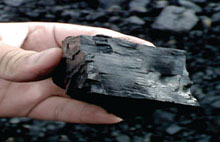
Coal traders rush to exit amid Chinese import controls

A major coking coal trader in China has sold five cargoes of premium low-volatile and premium mid-volatile cargoes since 1 November at progressively lower prices, as it has become apparent that the more prominent buyers in China are less willing to pick up seaborne coking coal with November-loading dates.
Customs officials at various ports — including in Nanning in Guangxi province, Shanghai and Hainan — have halted all customs declarations for coal imports. All other ports in China have also halted customs declarations for coal cargoes, although there are some exceptions on a case-by-case basis, Chinese steel producers said.
But traders have been scouring the country for potential clients to take the remaining cargoes out of their hands. Some relatively rare spot buyers have emerged in Tangshan recently. These buyers are mainly wash plants that are also able to import for their customers and hence have more flexibility to use the cargoes themselves if they encounter problems trying to sell them on.
These Chinese importers in Tangshan have also been opportunistic in trying to take positions recently, expecting Chinese demand for December-loading cargoes to rise as steelmakers eye a reset in import quotas in the new calendar year.
Chinese traders have even been selling to India as the barriers close in on China. A cargo of Peak Downs North for late-November to early-December loading was sold at the end of last week at $126/t fob Australia to an Indian steel producer on a tender basis. Other offers into the tender were similarly competitive in a $128-130/t fob range.
So far, the lowest traded price on a cfr China basis for premium mid-vol is $138/t cfr China for November-loading Peak Downs North and $146.50/t cfr China for November-loading Saraji. The premium low-vol price was especially shocking to market participants, which initially expected better prices given the relatively tighter supply of premium low-vol cargoes.
"Essentially, what these tightening restrictions have done is to snuff out all the remaining outlets for traders to continue their business," a Beijing-based trader said. "The last trade for Saraji was done at $163.50/t cfr just two weeks ago. Prices have fallen by a whopping $20/t since then. It is indeed a very bearish sign."


Trump weighs using $2 billion in CHIPS Act funding for critical minerals

Codelco cuts 2025 copper forecast after El Teniente mine collapse

Electra converts debt, launches $30M raise to jumpstart stalled cobalt refinery

Abcourt readies Sleeping Giant mill to pour first gold since 2014

Barrick’s Reko Diq in line for $410M ADB backing

Nevada army depot to serve as base for first US strategic minerals stockpile

Tailings could meet much of US critical mineral demand – study

Viridis unveils 200Mt initial reserve for Brazil rare earth project

SQM boosts lithium supply plans as prices flick higher

Energy Fuels soars on Vulcan Elements partnership

Northern Dynasty sticks to proposal in battle to lift Pebble mine veto

Giustra-backed mining firm teams up with informal miners in Colombia

Critical Metals signs agreement to supply rare earth to US government-funded facility

China extends rare earth controls to imported material

Galan Lithium proceeds with $13M financing for Argentina project

Silver price touches $39 as market weighs rate cut outlook

First Quantum drops plan to sell stakes in Zambia copper mines

Ivanhoe advances Kamoa dewatering plan, plans forecasts

Texas factory gives Chinese copper firm an edge in tariff war

Energy Fuels soars on Vulcan Elements partnership

Northern Dynasty sticks to proposal in battle to lift Pebble mine veto

Giustra-backed mining firm teams up with informal miners in Colombia

Critical Metals signs agreement to supply rare earth to US government-funded facility

China extends rare earth controls to imported material

Galan Lithium proceeds with $13M financing for Argentina project

Silver price touches $39 as market weighs rate cut outlook

First Quantum drops plan to sell stakes in Zambia copper mines

Ivanhoe advances Kamoa dewatering plan, plans forecasts

















